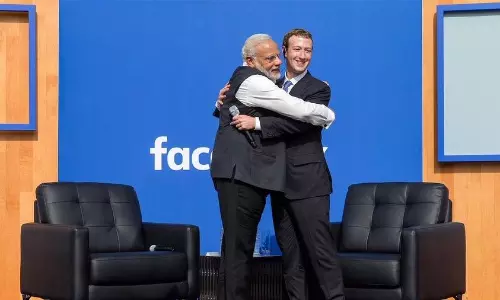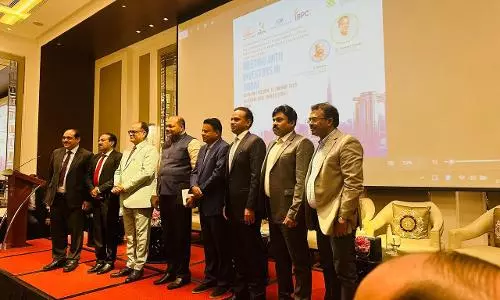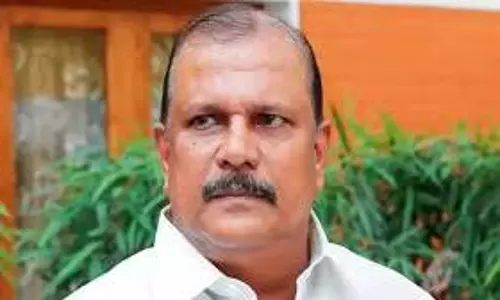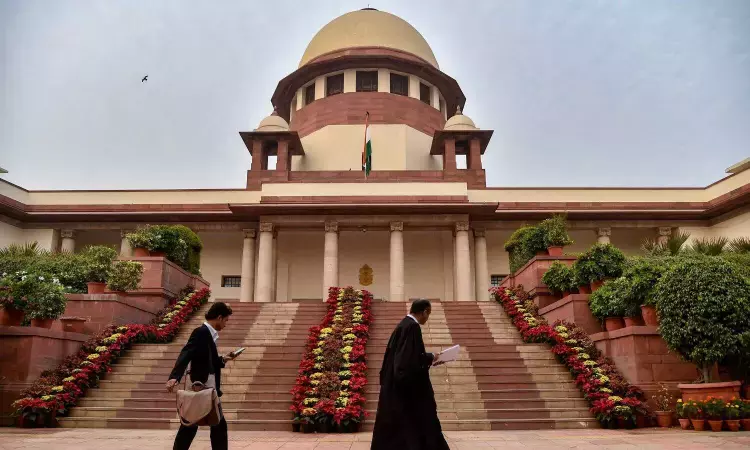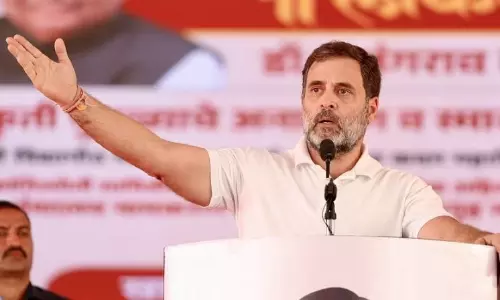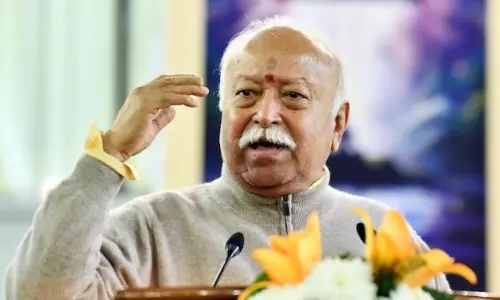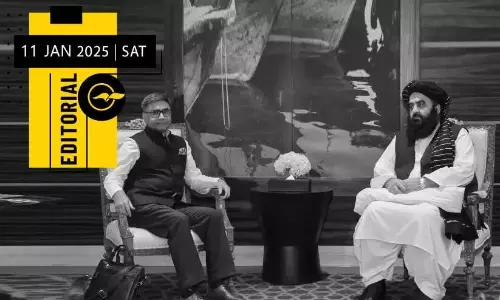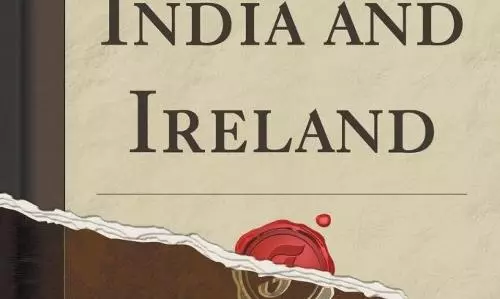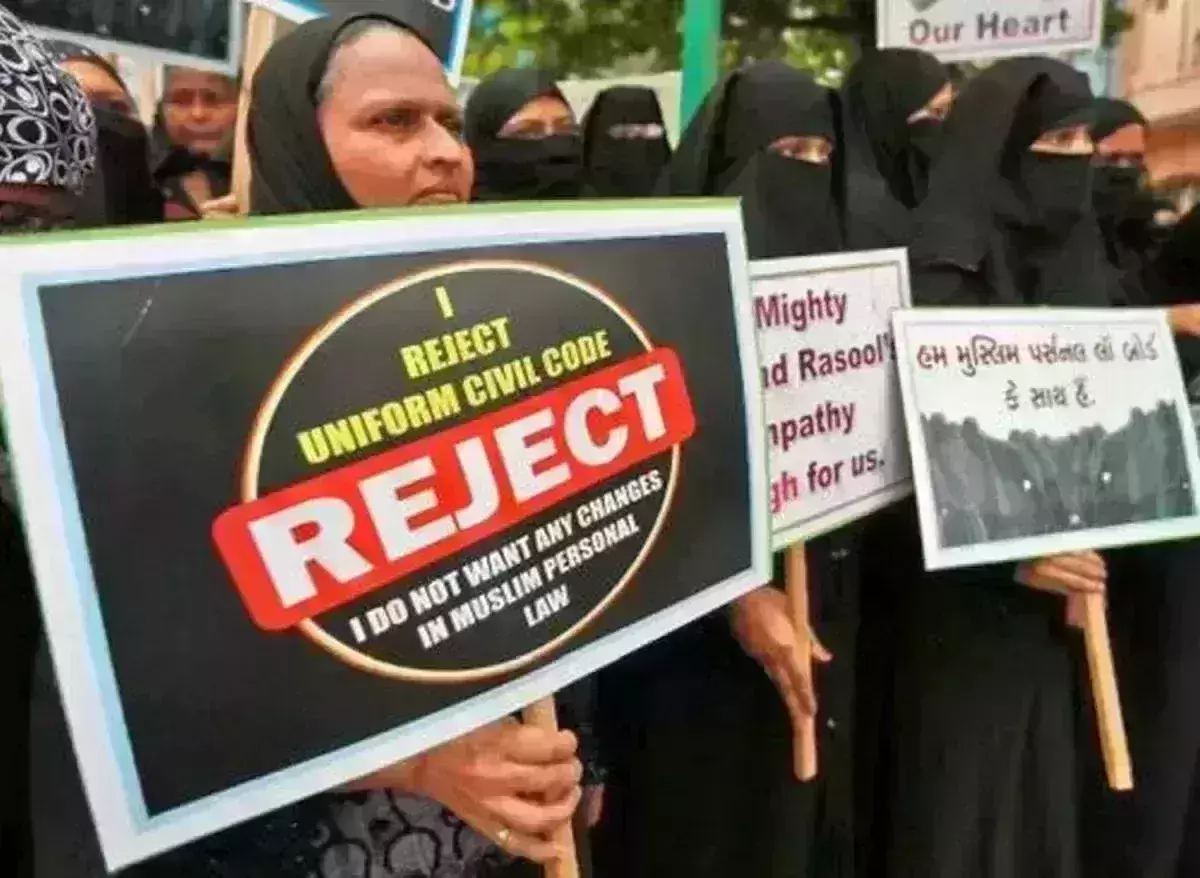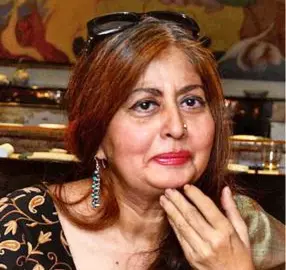
Demonising a community in the name of personal law
text_fieldsInstead of focusing on the rising prices touching frightful highs, the spread of the un-controlled fires and also viruses, together with hate cries and crimes, the latest provocation from the right-wing rulers is Uniform Civil Code.
Does the minority Muslim community want it …asking for it? Does it need it? Will it be of any good for this already battered, shattered community? Will it not bring about another blow or dent in the Muslim community and its struggle to survive against all possible odds heaped on it by the right-wing agenda? Isn't the talk to bring about the Uniform Civil Code, another of those agenda ploys to further upset the already bruised Muslim community in the country?
In today's polluted atmosphere, right-wing politicians miss no opportunity to spread negatives to the religion, Islam, and to its followers. They manage to getaway. How? This could be because the Indian Muslims are lagging on the socio-economic front. There's a lack of confidence and communication means to counter the communal characters who are part of the establishment. Also, the fact that the actual and genuine issues get bypassed in an atmosphere where only non-issues are allowed to flourish. During the 2017 election campaigns in Uttar Pradesh, BJP's top brass announced they would 'ban' Triple Talaq and with that reach out to the Muslim women! To all those fake promises fitted in their speeches, I'd reacted, with these two basic facts: If the right-wing was even one per cent genuinely concerned about the welfare of the Muslim women, there'd be no rioting. To be nearer precision, riots wouldn't get manufactured by the political mafia. Not to overlook the fact that each time a riot is made to take off the worst affected is the minority community.
Also, the notion of Triple Talaq is played up, although incidents of Muslim men divorcing their wives in this absolutely bizarre fashion are rare and also against the very essence of Islam. Needless to say, when such incidents take place, they are blown out of proportion to relay to the masses that the Musalmaans are a barbaric lot!
The reality is that Islam has provided ample guidelines but they are either bypassed or side-tracked. As the Mumbai based academic Zeenat Shaukat Ali, who taught Islamic Studies at St. Xavier's, put across, "wrong interpretations and then wrong perceptions are given." And Danial Latifi detailed the crucial 'why' he had decided to take up the controversial Shah Bano case. I quote from the interview he gave me, "I found Shah Bano to be an over a smart woman who took full mileage out of the case. Why did I take up her case? It was not as though I opted to fight for her. I was watching the proceedings of this case with a whole galaxy of lawyers, including the then chief justice of India, Justice Chandrachud. It was then, whilst her case was being argued by a junior lawyer, that the chief justice intervened and asked me, why don't I, as a senior lawyer, fight for her. So I had no choice but to fight for her."
Danial Latifi had made it very clear that Shah Bano got her due maintenance "on the basis and strength of Quran's provisions." He detailed, "First of all, despite the contrary belief, marriage is a very serious business in Islam. And the fact is that Triple Talaq is un-Quranic…Coming to the chapter on Talaq, it is this chapter that lays down all the details including the procedure for Talaq, and the importance given to the arbitration and maintenance aspects. One particular line from the Quran — wa lil mutha laqati mataun bil maroof haqqam alal mutaqqin (unto the divorced woman, a provision that is reasonable in the eyes of God, is obligatory, an obligation for the righteous), is adequate to provide her status and decent maintenance. And whilst fighting for the Shah Bano case, I quoted this line and the minute I showed this line to the chief justice he said that line was enough to get her due maintenance. So Shah Bano got her due maintenance on the strength of Quran's provisions."
Latifi was against the Common Civil Code and blamed the BJP for making it into some sort of a political issue, "I repeat I'm not in favour a Common Civil Code. It is not needed. It has become a political issue and the BJP and its allies are looking for an issue and want to rake it up. I personally feel the Muslims of the country do not need it."
In this context, I must also detail that in the mid- 90s, the Right-Wing brigades had come up with shrill cries for the Common Civil Code. The BJP claimed they had a so-called 'survey' done under the guidance of Sushma Swaraj, which 'showed' that the Muslim women were in favour of the Common Civil Code. It seemed a politically slanted survey. After reading the details of it, in the Hindustan Times, I met the then magazine editor of the Hindustan Times, Shyamala Shiveshwarkar, and requested her to publish my counter to the survey, which she did.
The counter carried several queries to the crucial aspects of that survey –- I'd asked which particular agency conducted the so-called survey, and in which mohallas and bastis, and also the names and addresses of the Muslim women spoken to, for the survey.
As expected I received no response to any of my queries!
Till I was in my mid-forties I wasn't really aware of any of the provisions or clauses for women in Islam. I had read the Quran several times but without really grasping the essence. But with my marriage reaching an all-time low, I was all too determined to go in for a divorce and with that began consulting lawyers.
The first lawyer I consulted was Rani Jethmalani. I had read her book 'Kali's Yug' and had heard her at various forums, so I decided to meet her for legal advice on how to go about the divorce. I recall telling her that I was petrified of the very word 'divorce' but was determined to go for it, as for years I was in an unhappy marriage. And to my surprise, she'd told me, "But it is so easy for a Muslim woman to end an unhappy marriage! You could go for Khula nama (where a woman has every right to end her marriage and with that gets 'released') or for the Talaq nama."
She detailed, "Islamic way of divorce is not just less time-consuming but far less traumatic …Going to the courts to fight for divorce is a soul-destroying process. I discourage my clients from doing so. There are enough divorce provisions in your religion, Islam, to safeguard a woman's interests."
That advice from Rani Jethmalani made me read books on Islam. For the first time in my life, I was grasping what my religion offered me, as a human being. What an eye-opener! If only I'd read those details much before.
There's ample flexibility for the woman — right from the fact that marriage is a contract and she has the equal and utmost right to end it if she is not compatible with the spouse on any given ground. She has the right to retain her father's name or the family surname or just about prefix 'Khatoon' or 'Fatima', so that even symbolically she is not dependent on any man. She carries the right to be answerable to nobody except the Creator. There are no mediators in Islam. With that, she owes no explanation to anyone. There's to be a direct connection with the Creator. With neeyat ( the very intentions) playing a very vital role in everyday life. In fact, this particular Hadith makes it amply clear that "actions will be judged according to intentions."
Also, she has the right to re-marry, the right to property, to mehr, to play an active role in society and at work. Ample examples hold out — Prophet Muhammad's first wife, Hazrat Bibi Khadija, was a successful businesswoman. Many women of that era played an active role not just in everyday life but even on the battlefield. They led troops on the battlefield, and tended to the injured during wars.
The list of rights is long, but many Indian Muslims are not even aware of them. Why? Lack of education is one of the basic reasons for this. The Quran and Hadith are read but without even trying to grasp the message they relay. Also, the social customs and traditions of the land hold sway.
Compounding the ground realities, there's that anti-Muslim propaganda spread out by the vested right-wing political interests. The ongoing vicious poisonous propaganda spread out is that it's a cakewalk for Muslims where sacrifices and marriages and divorces are concerned! I have overheard even the so-called who's who, indulging in today's all-time favourite past time — that is, Muslim bashing! "Yeh Musalmaan log!Yeh log kuch bhi kar sakte hain …bakre palte hain, aur phir unko marte aur khatai hain." Upgrading their hitting comments, from goats to marriages,"Yeh Musalmaan log shaadi mein kuch bhi kar sakte hain … maaza hai inke lia !" (These Muslims! These Muslims can do anything! They keep goats and then kill them and eat them…they can do anything in a marriage! All fun for them!)
Brimming with ignorance, the dangerous aspect is that several of these biased characters are the ones manning the very system. They are not just ignorant of the very concept of sacrifice in Islam but they are also ignorant about other aspects in Islam, pertaining to marriage, divorce and the related aspects.
After all, marriage is a contract in Islam and if it doesn't work out between the two partners then instead of killing each other, it is better to end that contract. It is also stressed in the Quran that go in for a divorce only and only after all possible options for reconciliation fail and it gets impossible to live together.
There is a Hadith which goes to say, "The thing which is lawful, but most disliked by God is divorce." But, then, if divorce does take place, there is this particular Hadith which places great responsibility on the divorced woman's family. I quote, "Shall I not point out to you the best of virtues? It is your doing good to your daughter when she is returned to you having been divorced by her husband."




